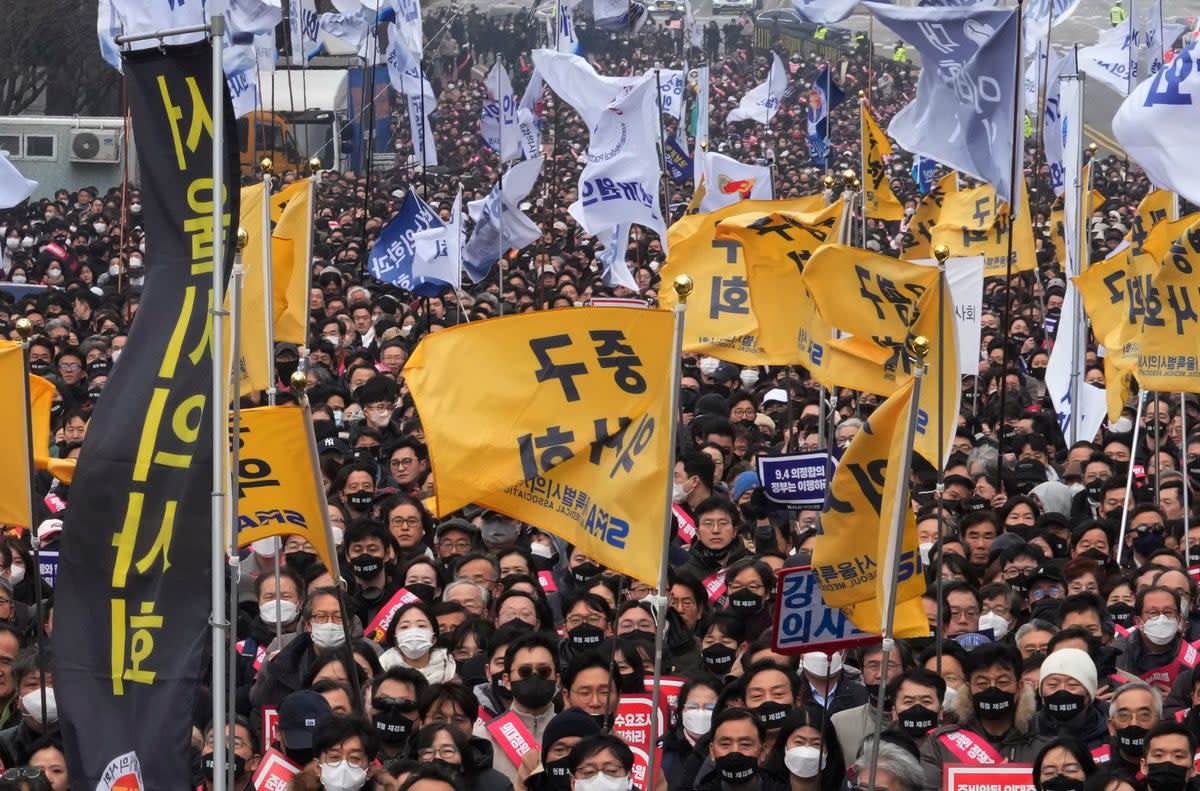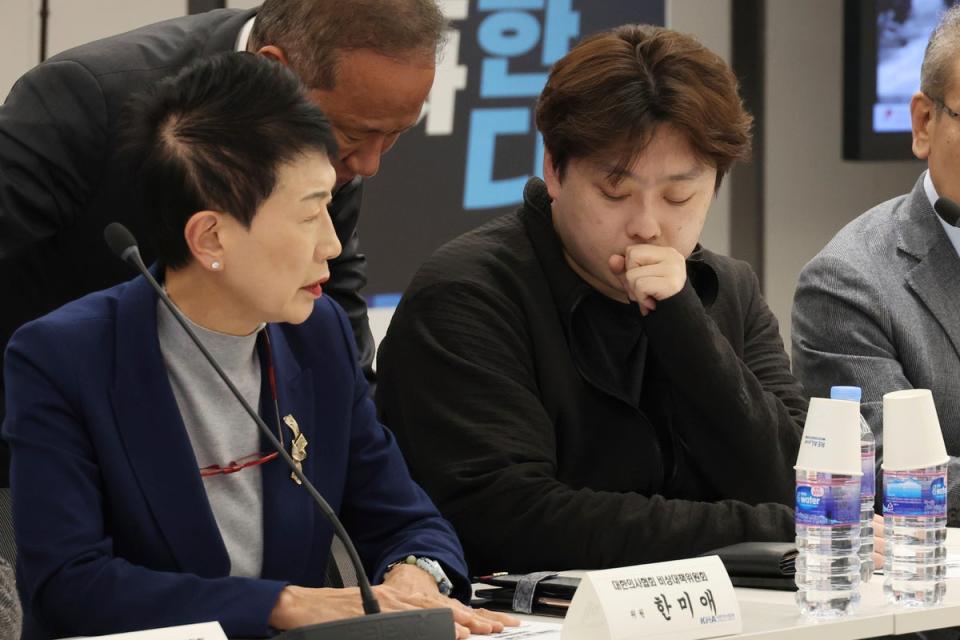Elderly South Korean woman dies after five-hour wait to find hospital amid ongoing doctors’ strike

An elderly woman in South Korea died after waiting for five hours for a hospital that could perform heart surgery during a doctors’ strike that has paralysed the country’s healthcare system.
Despite experiencing chest pains and seeking emergency assistance last month, six hospitals in South Gyeongsang province refused to admit her for treatment, according to the South China Morning Herald.
Eventually a hospital in Busan accepted her but lacked the resources for the required surgery.
The identity of the woman was not clear. After undergoing tests, she was transferred to another hospital, where she died as she was being prepared for the surgery.
In February, the resignation of thousands of striking junior and trainee doctors in response to a government initiative to increase medical student admissions left the healthcare system in disarray.
South Korea has one of the lowest doctor-to-patient ratios among major economies and recently the government proposed to add 2,000 slots to the current annual quota of 3,000 medical students.
The plan was immediately criticised by doctors, who took to the streets to protest with signs that read “end of healthcare”. The striking doctors argued this expansion won’t solve the actual shortages in certain specialities, where conditions and pay are poor, and could degrade medical service quality.
The strike has led to numerous cancelled surgeries and treatments, and even the death of an ophthalmologist who was overburdened due to the strike.
Meanwhile, the unidentified daughter of the deceased patient expressed frustration over the delayed admission to a hospital. She told SCMP: “I am very upset and sad at the thought that my mother may have survived if she had been admitted to a general university hospital in the first place.
“It’s deplorable that the possibility of her survival may have been lost due to the medical vacuum, although I cannot say for sure that she would have survived if she had been immediately operated on.”

The government has threatened to suspend the licenses of striking doctors, while more than 1,000 trainee doctors have filed a complaint against the vice-health minister, demanding his dismissal.
South Korean president Yoon Suk-yeol has pledged to not back down from his plans to increase medical school admissions as he accused striking doctors of behaving like a “cartel”.
He said earlier this month: “The number 2,000 is not a random figure we came up with. We have thoroughly reviewed relevant statistics and research and reviewed present and future medical situations.” He added that the government’s reforms aimed to create “a medical environment where all people can receive treatment with a peace of mind.”


